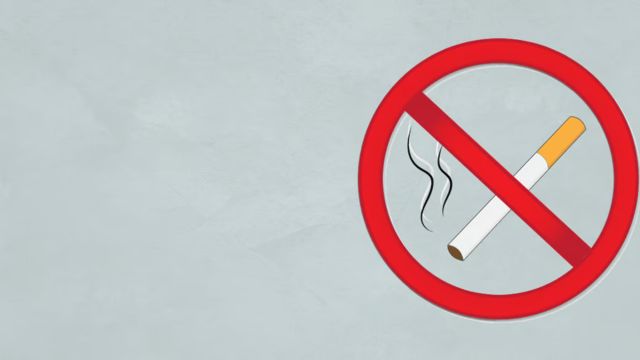In the landscape of modern consumer regulations, one of the more perplexing contradictions revolves around the sales of soda and cigarettes. On the surface, it might seem straightforward: both are products that have well-documented health risks.
Yet, while many cities and states have introduced restrictions or bans on soda sales—particularly sugary drinks—cigarettes continue to be legally sold across the nation, despite their well-established links to serious health issues. This legal contradiction raises questions about public health priorities, government intervention, and the roles of industries in shaping regulation.
The Health Risks: A Common Thread
Both soda and cigarettes have long been identified as contributors to significant health problems. The negative health effects of soda consumption, particularly sugary sodas, are numerous. They include obesity, type 2 diabetes, heart disease, and tooth decay. Studies have consistently shown that excessive sugar intake is one of the leading causes of many chronic health issues, particularly in children. This has led to calls for public health campaigns to curb soda consumption, especially in vulnerable populations.
On the other hand, cigarettes have long been proven to cause cancer, heart disease, respiratory issues, and a host of other health problems. Tobacco-related deaths are one of the leading causes of preventable death worldwide, and despite decades of anti-smoking campaigns and regulations, cigarette use remains widespread.
Both products carry substantial risks, yet the regulatory response to each seems vastly different.
The Soda Ban Movement

Over the last decade, cities and states have taken bold steps to curb soda consumption, especially sugary drinks. In 2012, New York City’s former mayor Michael Bloomberg proposed a ban on the sale of large sugary drinks in restaurants, movie theaters, and street carts. While the proposal was ultimately struck down by the courts, it symbolized the growing concern over soda’s health impact. Other cities, such as Berkeley, California, have implemented soda taxes to help reduce consumption and fund public health programs.
Meanwhile, schools across the U.S. have taken steps to limit the sale of sugary beverages on their campuses. The federal government, under the Healthy, Hunger-Free Kids Act of 2010, mandated that schools remove sodas from vending machines to promote healthier dietary habits among children. Additionally, some jurisdictions have raised the age at which soda can be sold, restricting it to those over 18.
NYC Parks Department Offers Lucrative Jobs with Salaries Reaching $94K
Despite these measures, soda remains widely available, and its regulation largely comes down to taxing or limiting its sale in specific locations. This approach contrasts sharply with tobacco regulations, where laws governing cigarettes are far stricter.
Cigarettes: Regulated but Not Banned
While soda sales are being limited, cigarettes—despite their lethal impact on health—continue to be legal and heavily marketed, albeit with restrictions. Tobacco products are taxed heavily, and regulations limit where they can be smoked (such as smoking bans in public places) and how they can be advertised (e.g., bans on television and radio ads). The government also mandates warnings on cigarette packaging about the dangers of smoking.
The major difference lies in the history and economics of the tobacco industry. Cigarettes have been a part of the global economy for centuries, and the tobacco industry has developed an enormous influence over governments worldwide. While public awareness of the harms caused by tobacco has grown significantly, the tobacco industry remains highly profitable, and cigarette sales continue to be a major contributor to state revenues through tobacco taxes.
Additionally, many argue that cigarette smoking is a personal choice, and people should be allowed to make their own decisions about smoking, despite the known health risks. The argument for personal freedom is something that the soda industry has yet to successfully employ, as the public health narrative around sugary drinks is more about the collective responsibility to reduce healthcare costs and promote better habits, especially in children.
The Inconsistent Logic of Regulation
One of the main reasons for the inconsistency between soda and cigarette regulation is the economic and political power of the industries involved. The tobacco industry has long had a strong influence over lawmakers, with heavy lobbying efforts aimed at reducing the scope of restrictions on cigarette sales. In contrast, the soda industry, while also powerful, has not been able to secure the same level of leniency in terms of public health regulations.
Furthermore, the argument for regulating soda tends to focus more on its impact on public health, particularly on obesity rates among children, whereas the argument for tobacco regulation is rooted in the long history of smoking-related deaths and the understanding that cigarettes are a major cause of preventable death. Many public health advocates believe the potential to reduce healthcare costs and improve overall well-being is a major motivation for soda bans and taxes, especially when it comes to combating the obesity epidemic.
A Complex Debate
The contradiction between the regulation of soda and cigarettes is a reflection of the complexities inherent in public health policy and the influence of powerful industries. Both soda and cigarettes are products that contribute to significant health risks, yet the government’s approach to regulating them has been markedly different.
As awareness of the dangers of sugary drinks continues to grow, it’s likely that the conversation surrounding soda regulation will evolve further, and perhaps even spark debates about revisiting the sale and taxation of tobacco products. The true challenge lies in finding the right balance between public health priorities, personal freedom, and the economic realities of the industries involved.




